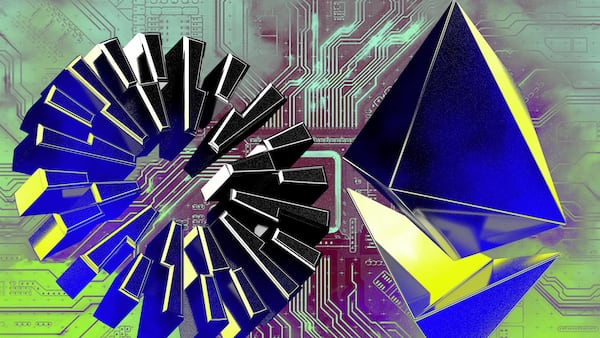- Zircuit has attracted over $128 million in deposits within the first 24 hours since opening deposits.
- It is backed by notable investors including Pantera, Dragonfly Capital, and Maelstrom, and introduces "sequencer level security."
- Zircuit allows for the staking of restaked and staked Ether.
A new Ethereum Layer 2 network, Zircuit, enables the staking of restaked and staked Ether.
Yes, you read that right.
Over $128 million has already been deposited in Zircuit since deposits opened in the last 24 hours, all before Zircuit’s mainnet has even gone live.
Zircuit is backed by Pantera, Dragonfly Capital, and Maelstrom and considers itself an Ethereum zero-knowledge layer 2 network. One of the key features Zircuit introduces is what it has dubbed, “sequencer level security.”
Zircuit monitors the mempool, the backlog of pending transactions on a blockchain, and searches for malicious transactions to prevent their inclusion in a block.
Essentially, if a hack or exploit is detected, the Zircuit network has the ability to stop it in its tracks.
Deposits now sit in a smart contract on Ethereum, and once the Zircuit mainnet goes live, users will have the option to migrate to the mainnet or withdraw at any time without penalties.
Until then, users can earn yield and points on their deposits. This includes the yield from Ether staking, EigenLayer points, liquid restaking protocol points, and Zircuit points.
For users who want to experiment on Zircuit’s testnet, it is already live.
EigenLayer is a new protocol within the Ethereum ecosystem that extends Ethereum’s security across blockchain networks by implementing restaking. The launch of the EigenLayer mainnet — the core blockchain infrastructure — is slated for the second quarter.
Zircuit accepts deposits in Ether, in liquid staking token stETH or in any of the following liquid restaking tokens: ezETH, rswETH, rsETH, and LsETH.
The largest depositor so far is wallet address, 1ef2, who has deposited over $22 million so far in stETH and rsETH tokens.
Points are part of a wider trend in crypto that generally precede a forthcoming airdrop. Users earn points, which are later migrated to tradable tokens in the future just by using these protocols.
Staking restaked staked Ether
Staking Ether secures the Ethereum network and offers users an annual percentage yield of 3%-4%.
Users can run their own node to stake, which involves a certain level of technical knowledge and at least 32 Ether, or they can use a liquid staking protocol like Lido that abstracts away the technical know-how and capital requirements of staking.
Restaking Ether involves depositing a liquid staked token, like stETH from Lido, into EigenLayer, a buzzy new Ethereum protocol that extends Ethereum’s security to other blockchain networks through restaking.
Currently, because the EigenLayer mainnet is still not live, staked Ether that is restaked with EigenLayer, or one of the many liquid restaking protocols, does not earn any additional yield, but earns EigenLayer points. It is expected when EigenLayer’s mainnet is live, restaked Ether will earn an additional yield.
Additionally, these liquid restaking protocols offer their own points on top of the EigenLayer points.
Finally, users can take their liquid restaked tokens, which are already earning the Ether staking yield, EigenLayer points, and liquid restaking protocol points and deposit them into Zircuit to earn Zircuit points. Or, users can choose to just deposit staked Ether.
Points are generally non-transferable, but one protocol, Whales Market, has opened up a secondary market for these points.
Points for EigenLayer have already seen over $2.1 million in total volume at an average price of $0.14, giving the estimated 1.7 billion points in circulation a market cap of $250 million.
Ryan Celaj is DL News’ New York-based Data Correspondent. Reach out with tips at ryan@dlnews.com.







